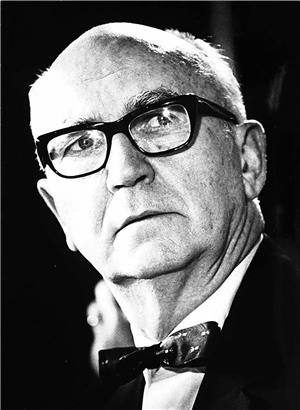On February 12, 1974, Federal Judge George Boldt (1903-1984) issues an historic ruling reaffirming the rights of Washington's Indian tribes to fish in accustomed places. The "Boldt Decision" allocates 50 percent of the annual catch to treaty tribes, which enrages other fishermen. At the same time Judge Boldt denies landless tribes -- among them the Samish, Snoqualmie, Steilacoom, and Duwamish -- federal recognition and treaty rights.
Western Washington tribes had been assured the right to fish at "usual and accustomed grounds and stations" by Federal treaties signed in 1854 and 1855, but during the next 50 years Euro-American immigrants -- armed with larger boats, modern technology, and the regulatory muscle of the state -- gradually displaced them. The campaign to reassert Native American fishing rights began in 1964 with "fish-ins" on the Puyallup River led by Robert Satiacum (1929-1991) and Billy Frank Jr. (1931-2014), who defied Washington state attempts to regulate their fishing.
Local tribes sued to block state regulation, but the U.S. Supreme Court issued an ambiguous decision in 1968 that left the issue unresolved. In 1970, the Nixon administration's U.S. Attorney for Western Washington, Stan Pitkin, filed a new complaint against the state of Washington, which was defended by Attorney General (future U.S. Senator) Slade Gorton. Commercial and sport fishing groups submitted friend-of-the-court briefs opposing treaty fishing rights.
This 1970 filing of U.S. v. Washington (384 Fed Supp) followed by nine days the arrest in Tacoma of 60 persons (Native Americans and their supporters) who failed to disperse during a fish-in on the Puyallup River. The trial began on August 27, 1973. Judge Boldt held court six days a week including on the Labor Day holiday. Forty-nine experts and tribal members testified.
Judge Boldt finally held that the government's promise to secure the fisheries for the tribes was central to the treaty-making process and that the tribes had an original right to the fish, which they extended to white settlers. It was not up to the state to tell the tribes how to manage something that had always belonged to them. Judge Boldt ordered the state to take action to limit fishing by non-Indians.
The Boldt Decision revolutionized the state fisheries industry and led to violent clashes between tribal and non-tribal fishermen and regulators. In 1975, the Ninth Circuit Court of Appeals upheld Boldt's ruling, and on July 2, 1979, the U.S. Supreme Court largely affirmed it in a ruling in a separate case. Principles established by the Boldt Decision have since been applied to other resources, including shellfish.

